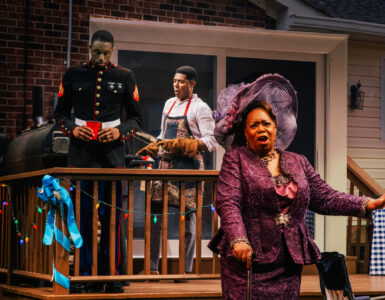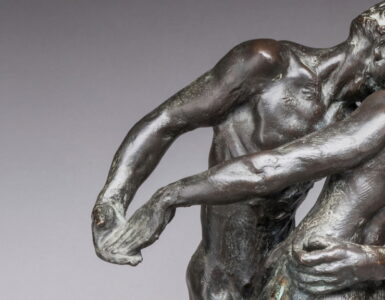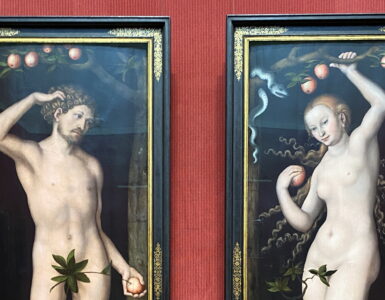
***
A comprehensive and in-depth exhibition at the Getty Center is in its last days. Closing on Sunday, Nov 14th and entitled Engaged Observers: Documentary Photography Since the 60s, it covers a wide breadth of subject matter seen through the discerning lenses of several artists. Terms such as “documentary” and “journalism” only begin to describe the evocative, personal projects of these nine photographers. Their incisive imagery brought attention to, and insight into, many corners of the world, from documenting and exposing the horrors of mercury poisoning in the Japanese town of Minamata to the slaughter of Rwanda to the horrors and culture clashes between the Americans and the Vietnamese during the Vietnam War.
Arresting, emotional and powerful images by acclaimed photographers such as Mary Ellen Mark, Susan Meiselas, Larry Towell and Lauren Greenfield are among the works on display.
Photographer and documentary filmmaker Lauren Greenfield has built her reputation as a chronicler of mainstream American culture. Visiting girls of all ages at home, in doctors’ offices, and out with friends, Greenfield examined personal issues of public consequence, providing an intense and intimate exploration of girls’ relationships to their bodies and the effects of popular culture on self-image.
In 1971 W. Eugene and Aileen M. Smith were told of a controversy over industrial pollution in the Japanese fishing village of Minamata. Beginning in the 1950s, thousands of people were severely affected by mercury poisoning, brought about by eating fish contaminated with chemical waste dumped in the bay by the Chisso Corporation. The ailment, which became known as Minamata Disease, caused irreversible brain damage, paralysis, and convulsions.
The couple set out to document the progress of a lawsuit against the company, recording the course of the trial through the court”™s ruling in favor of the plaintiffs in 1973.

Trained in economics before taking up photography, Sebastião Salgado has used his camera to raise awareness of the world’s economic disparities and provoke discussion about the state of our international social environment. Between 1994 and 1999 Salgado pursued an enormous project to document migrant populations around the world. Published in 2000 as Migrations: Humanity in Transition, this epic work documents people across 43 countries who have been uprooted by globalization, persecution, or war.

In the decades following World War II, an independently minded and critically engaged form of photography began to gather momentum. Its practitioners have combined their skills as artists and reporters, creating extended photographic essays that delve deeply into topics of social concern and present distinct personal visions of the world.
Engaged Observers looks in depth at projects by a selection of the most vital photographers who have contributed to the development of this approach. Passionately committed to their subjects, they have authored evocative bodies of work that are often published extensively as books and transcend the realm of traditional photojournalism.
In addition to the various rooms devoted to each photographer, individual or partners, there is also a display of earlier photos devoted to the subject of “˜food”™ from the Getty”™s permanent collection.
I just adored the atypical Weegee image of the cheery fellow carrying bagels at dawn. It was such a welcome relief from all the confronting yet utterly riveting and thought-provoking imagery.
Engaged Observers: Documentary Photography Since the 60s is a fantastic exhibition that should not be missed.
The J. Paul Getty Museum at the Getty Center
1200 Getty Center Drive, Los Angeles
Open:
Tuesday-Friday 10:00 a.m.-5:30 p.m.
Saturday 10:00 a.m.-9:00 p.m.
Sunday 10:00 a.m.-5:30 p.m.
Monday CLOSED
Closed Mondays and on January 1, July 4 (Independence Day), Thanksgiving, and December 25 (Christmas Day).
Admission to the Getty Center and to all exhibitions is FREE””no tickets or reservations are required for general admission.
Public Transportation
Get to the Getty Center via public transport! The Getty Center is served by Metro Rapid Line 761, which stops at the main gate on Sepulveda Boulevard. To find the route that is best for you, call (800) COMMUTE or use the Trip Planner — the Web site of the Los Angeles County Metropolitan Transportation Authority.
Parking is $15 per car. Entry is FREE after 5:00 p.m. for the Getty Center’s evening hours on Saturdays (when they are open until 9:00 p.m.), as well as for all evening public programming, including music, film, lectures, and other special programs held after 5:00 p.m.
Parking reservations are neither required nor accepted. For more parking information, see hours, directions, parking.
and frequently asked questions.
Review by Pauline Adamek







